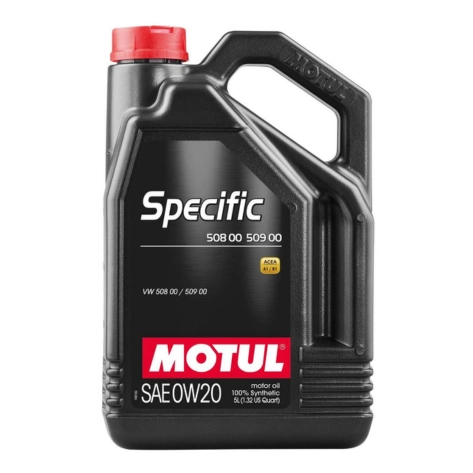Choosing the appropriate engine oil for your Audi Q5 is not just a regular maintenance task; it is a critical decision that impacts your vehicle’s performance, efficiency, and lifespan. Oil is essential for your engine’s performance and longevity.
It lubricates the moving parts to minimize friction and is crucial in cleaning and cooling the engine. By doing so, it safeguards the engine from potential wear and damage. However, selecting the right oil can feel overwhelming with the wide range of oil grades and standards available, especially those specified by VW/Audi.
This comprehensive guide aims to simplify the complexities of VW/Audi oil grades and specifications, ensuring that you, as an Audi Q5 owner, can make an informed choice. At the end of this, you will understand the significance of oil grades, their impact on your vehicle’s performance, and the art of choosing the ideal oil to ensure the smooth and reliable operation of your Audi Q5.
Whether you need a quick refill or an oil change, this guide has all the necessary information. Let’s explore the important aspects of Audi Q5 engine oils to help maintain optimal performance for your vehicle.
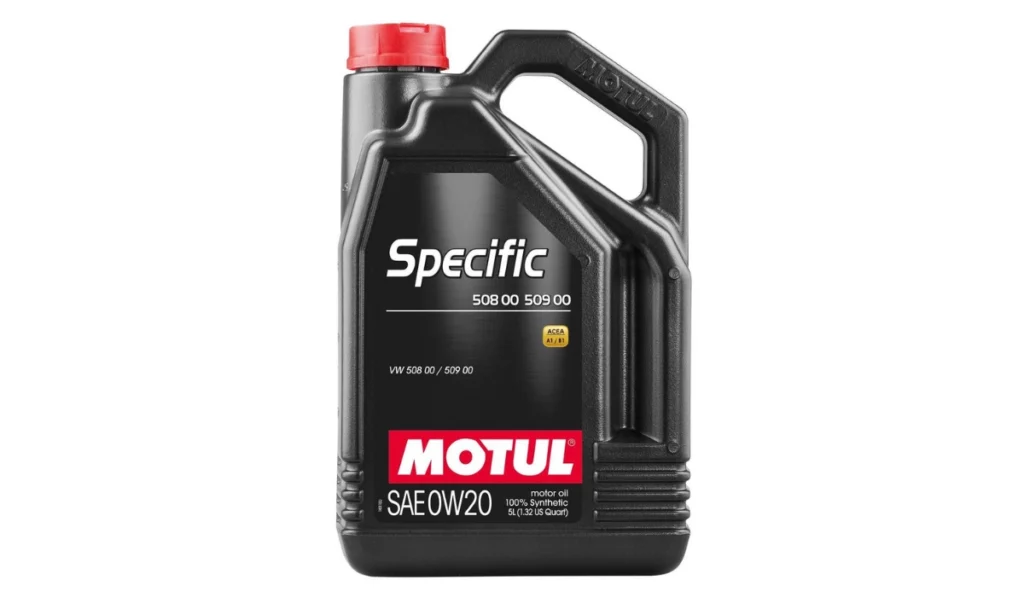
Understanding VW/Audi Oil Specifications and Their Importance
Volkswagen Group, along with Audi, has created a thorough range of oil specifications specifically designed to meet the unique requirements of their engines. Every specification represents a benchmark that guarantees the engine oil meets strict quality standards for performance, durability, and adherence to environmental regulations. Take a closer look at some important VW/Audi oil specifications and what they mean for your vehicle.
VW/Audi Oil Specifications Explained
Oil specifications for VW/Audi vehicles are classified using various codes. Every engine oil is designed to meet the specific requirements of different engines, whether for gasoline engines, diesel engines equipped with particulate filters, or engines that need extended service intervals.
The VW oil grades have been carefully designed to protect against wear and tear. They ensure efficient operation across various temperature conditions while also aiding in reducing engine deposits and emissions.
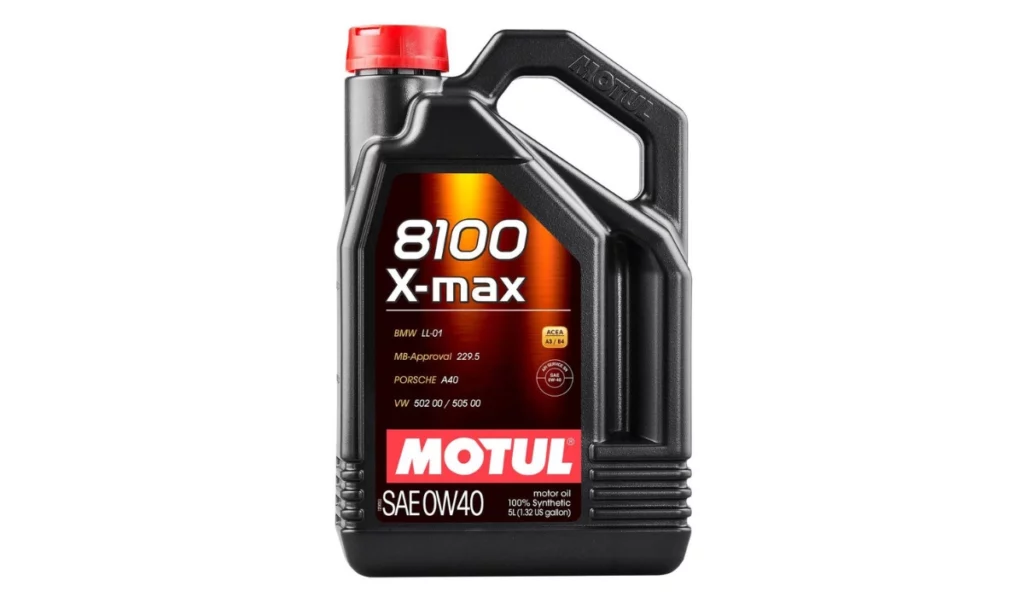
VW 502 00
The VW 502 00 oil specification has been widely used in America for almost all VW/Audi gasoline engines from the 1990s to 2019. It is designed for engines operating under strenuous conditions and is approved for VW’s 10,000-mile or annual oil change intervals. Motul has a wide selection of VW oil specifications. Here’s our curated list of VW 502 00 Audi Q5 engine oils:
| VW 502 00 | |
| Motul 8100 X-Clean 102051 | 5W-40 (for all temperature ranges) |
| Motul 8100 X-Cess 102870 | 5W-40 (for all temperature ranges) |
| Motul 8100 X-Cess (Gen2) 110905 | 5W-40 (for all temperature ranges) |
| Motul 6100 SYN-Clean 107943 | 5W-40 (for all temperature ranges) |
| Motul 8100 X-Cess 108946 | 5W-30 |
| Motul 6100 SYN-Nergy 107972 | 5W-30 |
| Motul 8100 X-Max 104533 | 0W-40 |
VW 504 00
The VW 504 00 oil specification, also known as Longlife III, is designed for Audi VW gasoline engines with extended service intervals. It comes in different oil viscosity, 5W-40 (for all temperature ranges), 5W-30, 0W-40, and 0W-30 (for cold regions only).
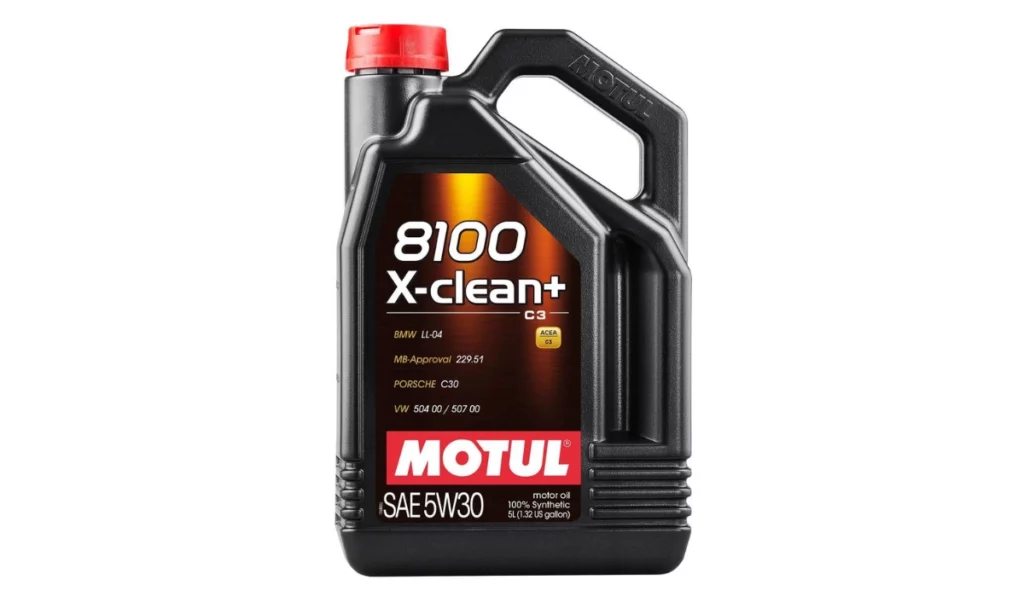
The VW 504 00 is favored for its high purity standards, which help reduce carbon buildup common in modern VW TSI and TFSI engines. See what VW 504 00 engine oil grade Motul is offering:
| VW 504 00 | |
| Motul 8100 X-Clean+ 106377 | 5W-30 |
| Motul 8100 X-Clean+EFE 111678 | 0W-30 (for cold regions only) |
VW 507 00
The VW 507 00 oil specification, also known as Longlife III, is a low-ash or low-saps engine oil tailored for VW TDI diesel engines equipped with Diesel Particulate Filter (DPF) systems compliant with EURO IV, V, and VI emissions standards. It comes in different oil viscosity, 5W-40 (for all temperature ranges), 5W-30, 0W-40, and 0W-30 (for cold regions only).
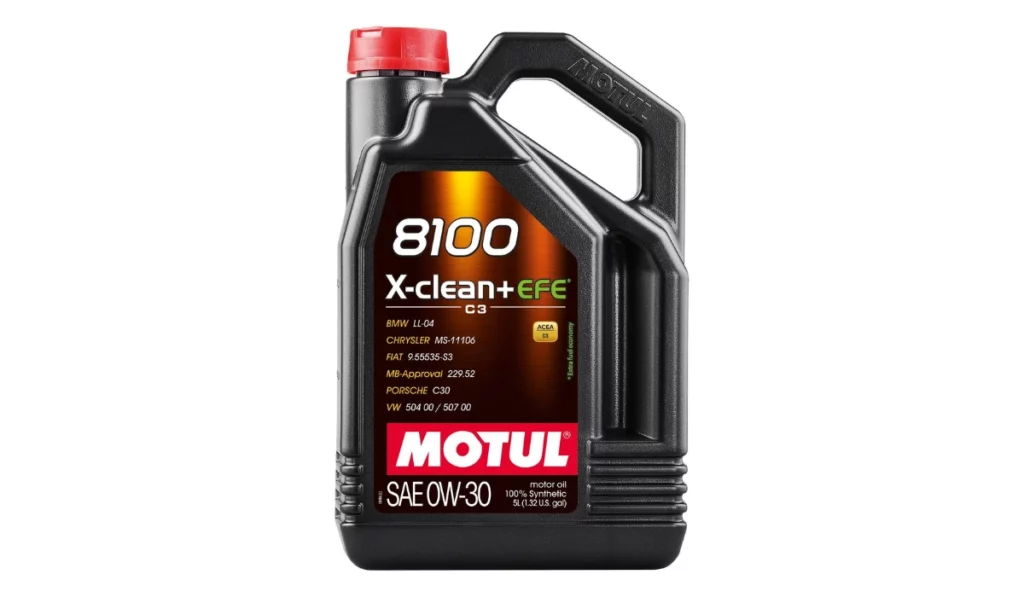
Using the correct VW 507 00 specifications is crucial as it prevents clogging in the DPF and Exhaust Gas Recirculation (EGR) systems, which can lead to severe damage in the turbocharger and engine internals, potentially resulting in catastrophic engine failure. See what Audi Q5 engine oil VW 507 00 recommendations from Motul:
| VW 507 00 | |
| Motul 8100 X-Clean+ 106377 | 5W-30 |
| Motul 8100 X-Clean+EFE 111678 | 0W-30 (for cold regions only) |
VW 508 00
The VW 508 00 oil specification is Volkswagen’s latest and most advanced gasoline oil spec, introduced primarily for performance, fuel efficiency, and extended service intervals. Available solely in an SAE 0W-20 viscosity, this green-colored oil is specifically designed for use in newer Audi and VW engines.
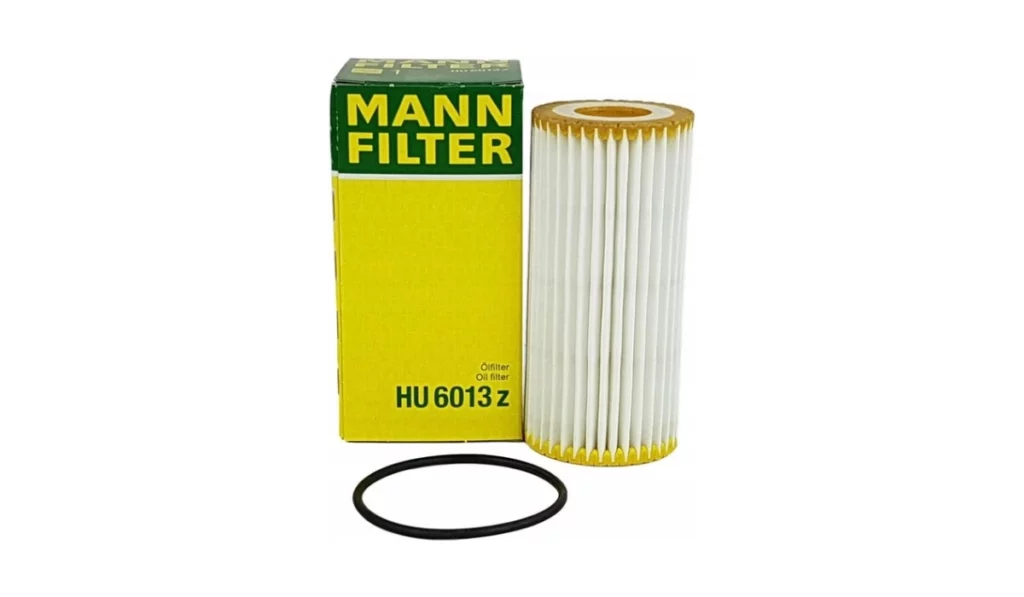
It is not backward compatible with older VW engine specifications and can cause irreversible damage if used incorrectly. The table below is the recommended Audi Q5 engine oil with VW 508 00 specifications from Motul.
| VW 508 00 | |
| Motul Specific VW 508.00 VW 509.00 107384 | 0W-20 (for all temperature ranges) |
The Role of Oil in Engine Performance
The primary role of engine oil is to lubricate the engine parts, which minimizes friction and wear. The right type of oil can significantly enhance engine performance by ensuring smooth operation of the moving parts.
This is particularly important for high-performance vehicles from VW/Audi, where precision engineering is at the forefront. Advanced full-synthetic oils, for instance, are engineered to flow quickly at low temperatures, providing a rapid protective film and reducing engine wear during startup.

Oil’s Contribution to Engine Protection
Engine oil serves as a protective layer that prevents direct contact between metal surfaces, effectively minimizing the chances of any potential damage. Top-notch engine oils recommended by VW/Audi come with additives that effectively counteract acids resulting from fuel combustion, thereby safeguarding against corrosion. These oils are essential for keeping the engine clean by trapping dirt and debris, preventing the build-up of sludge that can cause blockages.
Enhancing Engine Efficiency
Efficient lubrication reduces the energy required to move engine components, which can lead to better fuel economy. VW/Audi oils are specially formulated to maintain their viscosity at different temperatures, ensuring effective lubrication without thickening in cold weather or becoming too thin at high temperatures. This adaptability helps maintain engine efficiency throughout the oil’s service life.
What happens if you put the wrong oil in an Audi?
Using the wrong oil in an Audi engine can lead to significant engine issues. Initially, using incorrect oil grades might cause minor problems, such as unusual engine noises or reduced performance.
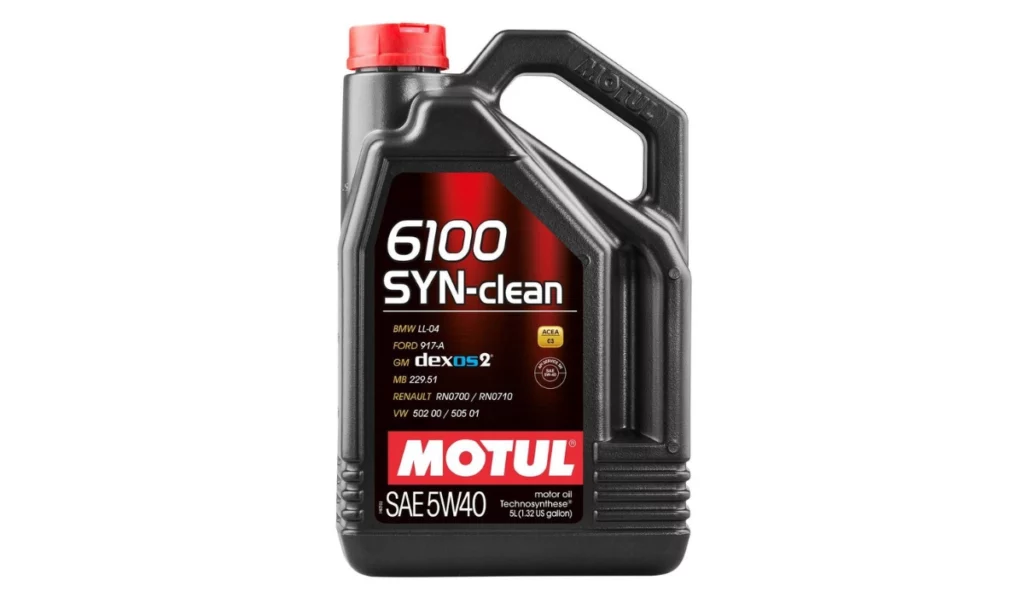
If the inappropriate oil is continued to be used over time, it can lead to more severe consequences, including increased wear and tear on engine components. Extended use of incorrect oil compromises the engine’s lubrication system, potentially resulting in accelerated component wear or even catastrophic engine damage.
Decoding the VW/Audi Oil Quality Standards for Audi Q5
When it comes to the Audi Q5, understanding the VW/Audi oil quality standards is key to ensuring your vehicle runs smoothly and efficiently. These standards have been tailored to meet the intricate needs of the Audi Q5’s engines across different model years.
2009-2012 Audi Q5
The VW 502 00 oil specification is recommended for Audi Q5s equipped with a 3.2-liter V6 FSI engine. This oil specification is formulated to provide the right balance of lubrication and protection for the engine’s specific design and output characteristics.
| 2009-2012 Audi Q5 | |
| Engine Variant | VW/Audi Oil Specification |
| 3.2-liter V6 FSI Engine | VW 502 00 |
2013-2017 Audi Q5
Recommended oil specs vary depending on the engine. The 2.0-liter TFSI inline-4 turbocharged engines and 3.0-liter TFSI V6 supercharged engines can use oils compliant with VW 502 00 or VW 504 00 specs. As for the 3.0-liter TDI V6 turbocharged diesel engines, the VW 507 00 specification is recommended.
| 2013-2017 Audi Q5 | |
| Engine Variant | VW/Audi Oil Specification |
| 2.0-liter TFSI Inline-4 Turbocharged Engine | VW 502 00 — VW 504 00 |
| 3.0-liter TFSI V6 Supercharged Engine | VW 502 00 — VW 504 00 |
| 3.0-liter TDI V6 Turbocharged Diesel Engine | VW 507 00 |
2018-2024 Audi Q5
The oil specification preferences have evolved. The 2.0-liter TFSI inline-4 turbocharged engines are suited to oils that meet VW 502 00, VW 504 00, or VW 508 00 specifications—the latter is only for models from 2019 onwards. Meanwhile, the 3.0-liter TFSI V6 turbocharged engines require oil to meet the VW 508 00 spec.
| 2018-2024 Audi Q5 | |
| Engine Variant | VW/Audi Oil Specification |
| 2.0-liter TFSI Inline-4 Turbocharged Engine | VW 502 00 — VW 504 00 — VW 508 00 (only for 2019 onwards) |
| 3.0-liter TFSI V6 Turbocharged Engine | VW 508 00 |
These VW/Audi oil specifications are integral to the proper functioning of Audi Q5 engines. VW/Audi considers factors such as the fuel type, combustion processes, and emission control technologies used in each engine variant.
The engine oils formulated to meet these specs are equipped with the right additives and viscosity levels to maintain engine cleanliness, protect against wear, and ensure efficient performance, even under the demanding conditions these luxury SUVs often face.
Discover Exceptional Deals on OEM and Genuine Audi Parts
eEuroparts.com is your premier source for an extensive array of genuine Audi and OEM parts, all available at unparalleled online rates. Our mission is to provide every Audi aficionado with superior-quality car components, rendering steep expenses obsolete for essential vehicle upkeep.
Our broad range is carefully selected to cater to your Audi’s specific requirements, guaranteeing a perfect match and strict compliance with OEM specifications. Opting for eEuroparts.com translates to remarkable savings without compromising part quality, making us the preferred choice for Audi DIY enthusiasts who prioritize outstanding value and dependability.
How to Choose the Right Oil for Your Audi Q5
Selecting the proper oil for your Audi Q5 ensures your engine runs optimally. While the guide here reflects the latest requirements, your Audi’s owner’s manual and the oil recommendation sticker in your engine compartment are the most reliable sources for identifying the precise oil type needed for your specific model.
When reading oil labels, look for the following:
VW/Audi Approval — Ensure the oil has the VW rating that corresponds to your Audi’s requirements. For example, if your Audi Q5 needs VW 502 00 specification oil, the label should clearly indicate this approval.
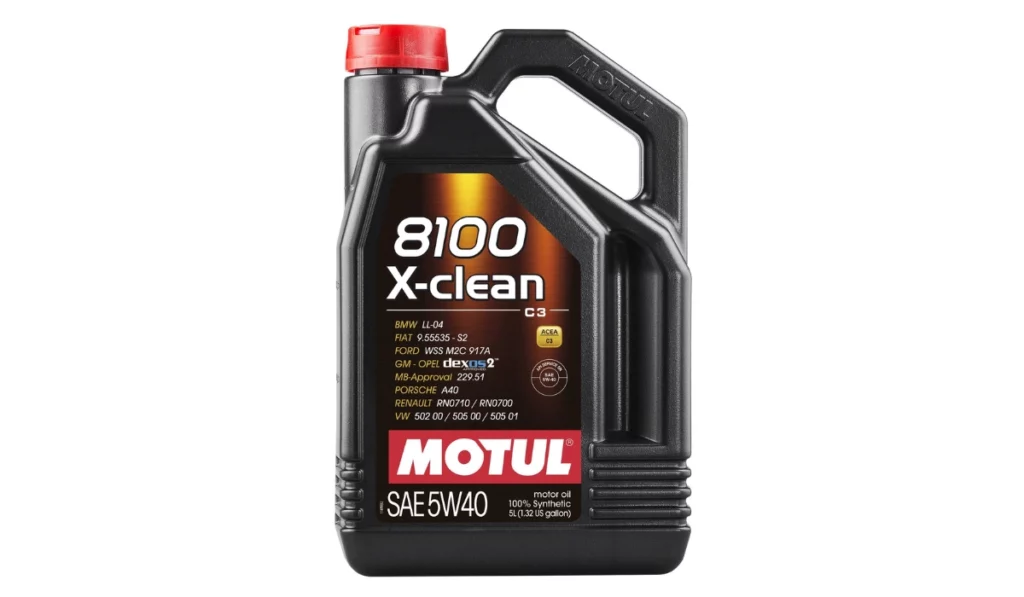
Viscosity Rating — Often referred to as the thickness or resistance to flow, is indicated by ratings like 5W-40. The first number with the ‘W’ denotes the oil’s flow at cold temperatures, with a lower number meaning it flows more easily at low temperatures. The second number represents the oil’s resistance to thinning at high temperatures, with a higher number indicating better viscosity retention at engine operating temperatures.
Additional Specifications — Some Audi engines may require oil that meets additional specifications, such as being suitable for turbocharged engines or compatible with diesel particulate filters. Ensure that the oil you choose meets all the specific requirements for your engine variant.
Online Data Sheets — Most manufacturers have detailed data sheets available online if the oil packaging does not provide enough information. These documents offer comprehensive information on engine oil properties and confirm if the oil is VW-approved.
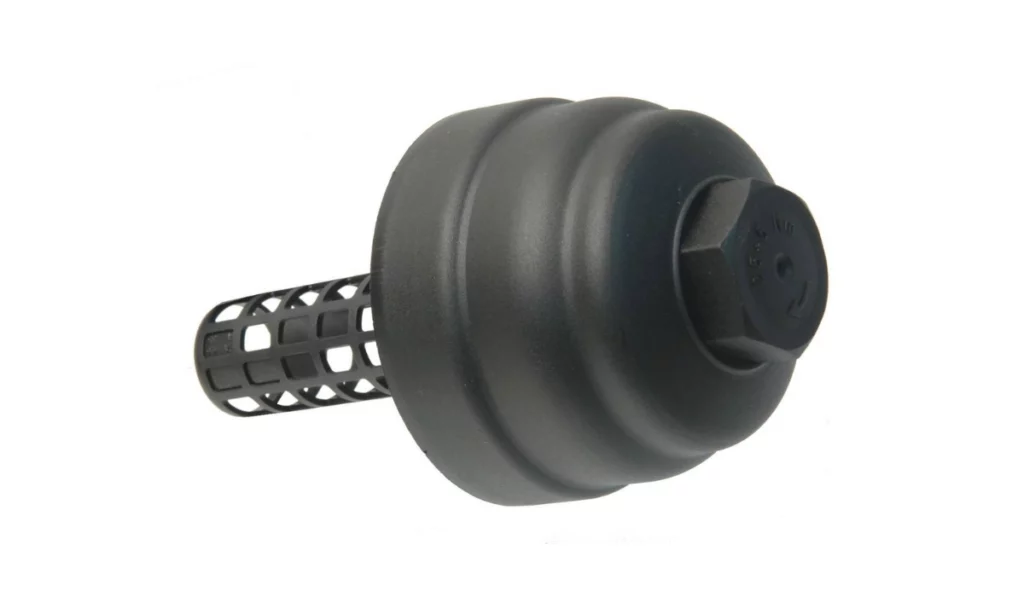
Top Recommended Oils for Audi Q5
Motul Lubricants are highly recommended for Audi Q5 owners seeking a top-tier yet cost-effective alternative to genuine VW and Audi engine oils. Renowned for surpassing VW’s stringent specifications, Motul offers an impressive blend of quality and affordability.
The Motul 8100 and Motul 6100 series are particularly noteworthy in their range. Additionally, the Motul Specific line is formulated to meet the exact requirements of Audi vehicles, ensuring compatibility and performance. Our article is a must-read if you want to learn more about Motul’s excellence and quality.
Choosing Motul engine oils for your Audi Q5 can offer a “true bang for your buck,” delivering the high standards your vehicle needs without the premium cost of Genuine VW and Audi-branded oils.
Can I use 5W-30 for Audi?
Yes, you can use 5W-30 oil in your Audi if it meets the specific VW/Audi oil quality standards required for your engine. When selecting oil, it’s essential to ensure that the 5W-30 oil complies with the particular specifications outlined in your Audi’s owner manual, such as VW 502 00 or VW 504 00, among others.
These standards are designed to ensure optimal performance and protection for your engine under various operating conditions. Using the correct oil not only prolongs the life of your engine but also helps maintain its efficiency and performance over time. Always check the manufacturer’s recommendations to confirm which oil specifications are suited for your Audi Q5.
Changing Oil in Your Audi Q5 — DIY Tips and Guides
Changing the oil in your Audi Q5 is a manageable DIY task that can significantly contribute to your vehicle’s health and longevity. Here are some DIY tips and best practices for an oil change:
Tools You’ll Need
- Safety goggles
- Working gloves
- Shop towels or rags
- Hydraulic jack
- Jack stand
- Ratchet and socket set
- Torx bit socket set
- Allen key bit socket set
- Screwdriver set
- 36 mm and 32 mm socket
- Oil filter wrench
- Funnel
- Oil drain pan

Safety Tips
- Ensure the car is on a level surface and the engine is cool to touch before starting.
- Use jack stands to secure the vehicle after lifting; never rely solely on a jack.
- Wear gloves and safety goggles to protect against hot oil and accidental spills.
Audi Q5 Oil Change Step-By-Step Guide
Undertaking an oil change for your Audi Q5 can be a rewarding do-it-yourself endeavor that helps prolong your engine’s lifespan and reduces maintenance expenses. Once you have gathered your tools and taken the necessary safety precautions, this step-by-step guide will help you with your DIY maintenance smoothly.
Raise the vehicle
Warm up the engine first to ensure all the debris will be drained out, but be sure it is cool enough to be touched. Then, raise the car using a hydraulic jack and ensure it is leveled. Make sure to use the jack stand to properly support the vehicle, as relying solely on the hydraulic jack is insufficient. You can skip this step if you can fit under the car without lifting it up. Just ensure you are comfortable while working.
Removing underneath cover
To access the oil drain plug, removing the engine underneath cover is necessary. It is secured using a combination of Torx screws and Phillips screws. When removing the final screw, make sure to hold the cover securely to avoid any accidents.
Draining the oil
Open the oil fill cap and dipstick (if applicable) to ensure the oil drains efficiently. Next, carefully return underneath the vehicle to loosen the oil drain plug. Depending on its type, it can be a Torx or an Allen-bit drain plug.
Replacing oil filter
As the old engine oil drains, it’s a good idea to begin loosening the oil filter. You may require an oil filter wrench if the canister oil filter is too tight. To remove and replace the cartridge oil filter, you’ll need a 32 mm or 36 mm socket, depending on the type of oil filter cap.
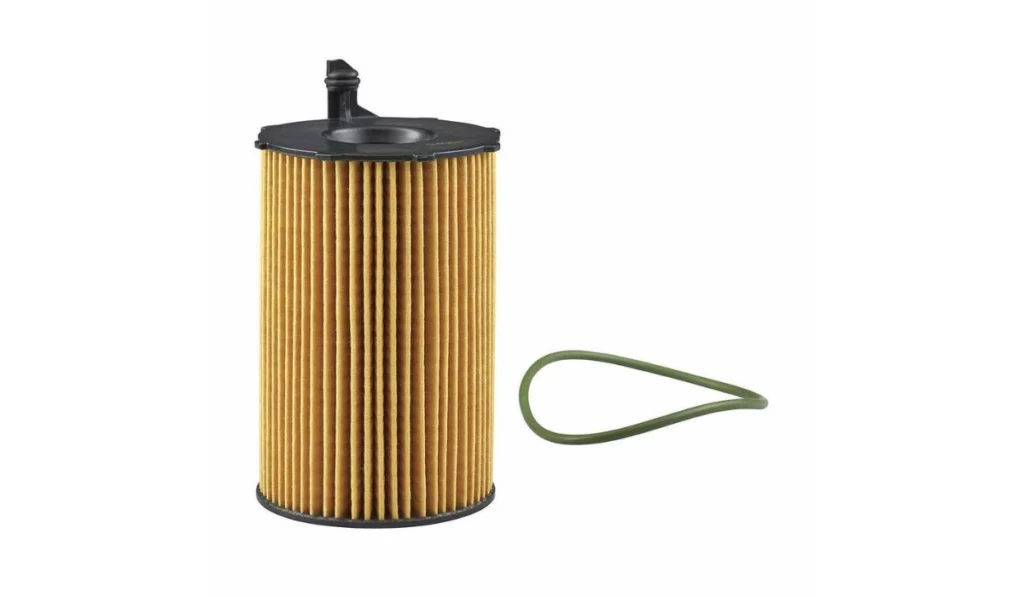
When dealing with canister-type oil filters, it’s important to properly clean the mating surface and apply engine oil to the oil seal. Hand-tighten the oil filter until it stops, then add an additional three-quarters of a turn.
When dealing with cartridge-type oil filters, it is necessary to remove the old oil filter element and replace the oil seals. An extra O-ring on the oil filter housing for the V6 engines will also require replacement. Make sure the oil seals are properly seated and lubricated. Place the oil filter cartridge onto the oil filter cap and securely fasten it to the oil filter housing. Adhere to the specified torque indicated on the oil filter cap.
Filling engine oil
Reinstall the drain plug with a new crush washer — or a new plastic drain plug — before filling the engine oil. Use a funnel to fill the right VW oil grade on your Audi Q5. Do not overfill the engine. Remember, it is easier to top up than drain the oil.
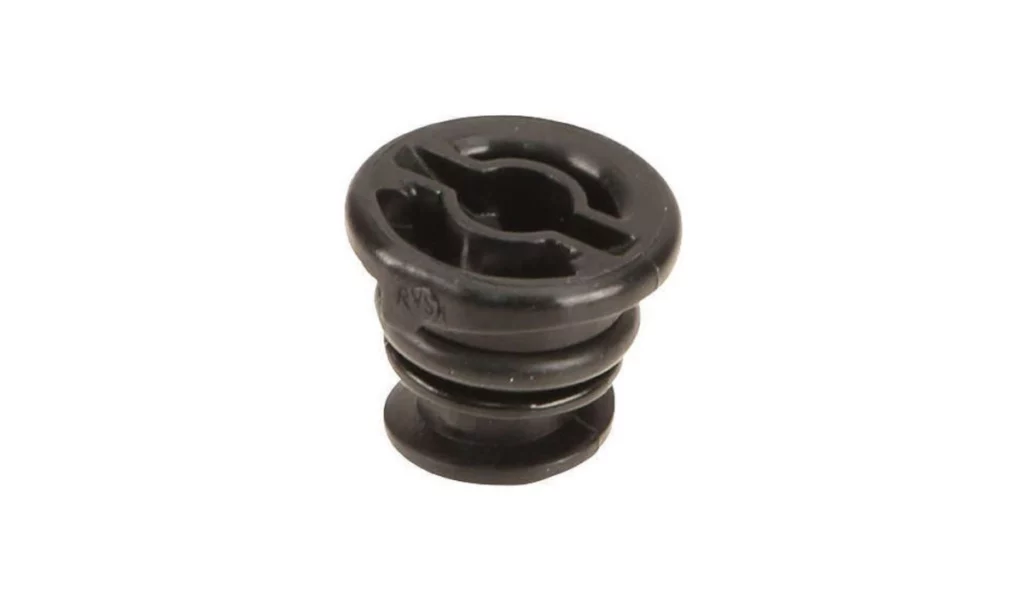
Reset service interval
Don’t forget to reset the service interval alert on your MMI. This will ensure that you receive timely notifications for your upcoming service appointments.
Frequency of Oil Changes
The frequency of oil changes can differ based on the specific variant and model year of the Audi Q5. However, most Audi Q5 models in the USA have a service interval of 10,000 miles. If you happen to have a tuned setup for your Audi Q5, it would be wise to consider changing the oil more frequently, approximately every 5,000 miles. This is because performance modifications can potentially put additional strain on the engine.
DIY Oil Change Best Practices
Start with the Right Oil — To maintain optimal engine function, Use the correct VW oil grade and viscosity that match your Q5’s specifications.
Initial Filling Caution — When adding new oil, initially put in .5 quart less than the capacity. Run the engine to the normal operating temperature, then check the oil level after a few minutes to ensure the correct oil level and top up if necessary.
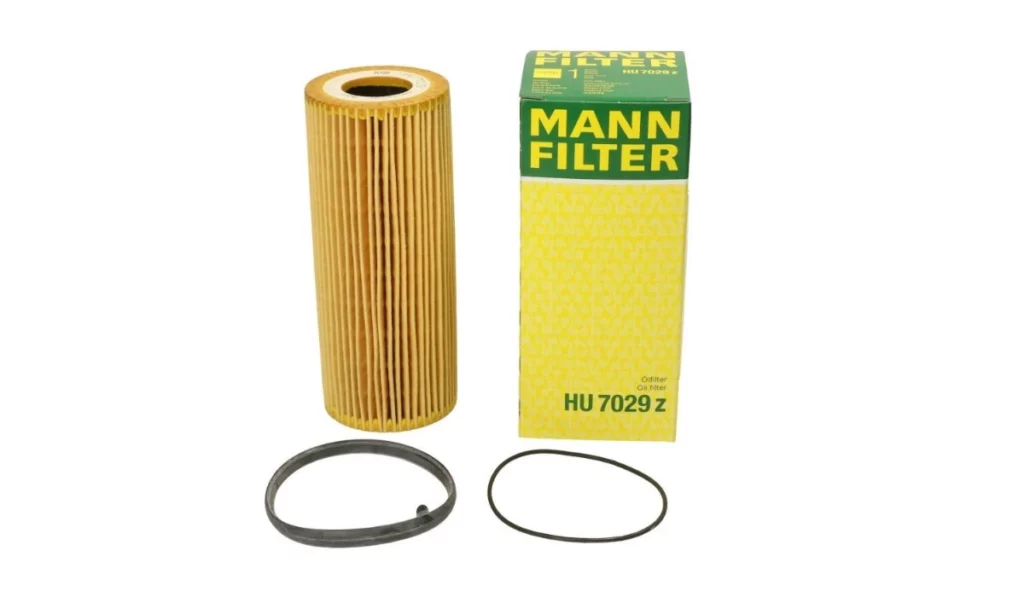
Seal and Washer Replacement — Always replace O-rings and lubricate them before installation to ensure a proper seal. Also, the crush washer on the oil drain plug must be replaced to prevent leaks; some models require oil drain plug replacement.
Proper Disposal — Follow local regulations for disposing of old oil and oil filters.
How do I know if my Audi is burning oil?
You can conduct an oil consumption test to determine if your Audi is burning oil. Start by filling the engine oil to the maximum and resetting your odometer. As you drive, regularly check and monitor the oil level. This test helps you measure the amount of oil your engine consumes over a set number of miles.
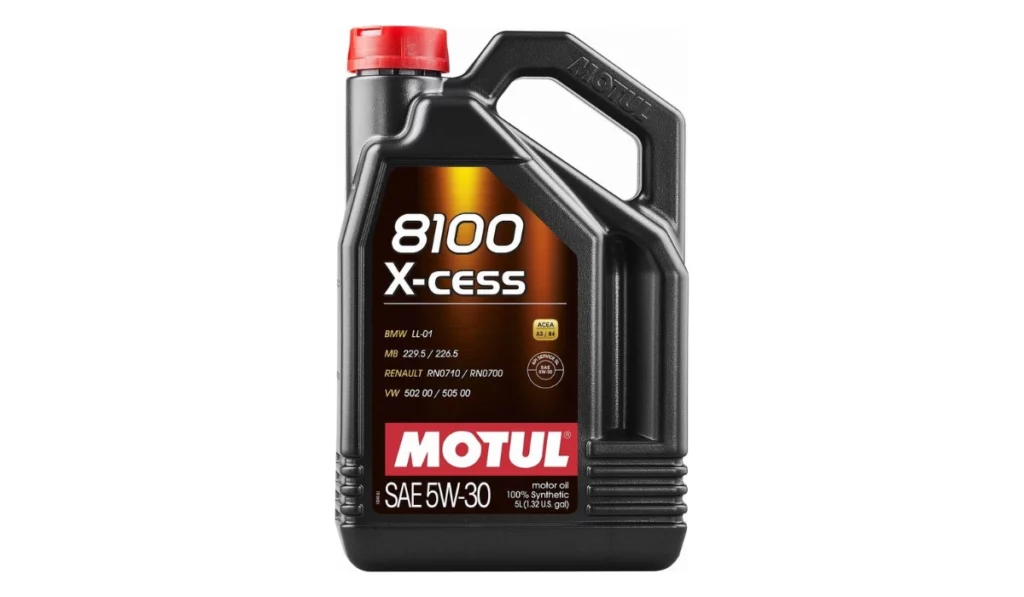
An engine consuming more than 1 quart of oil after driving less than 2000 miles may indicate an issue. Though the Volkswagen Audi Group (VAG) group won’t recognize this. As per the VAG group, it is normal for an engine to consume 1 quart of oil after driving 1200 miles or above. This standard helps differentiate between normal engine operation and a potential defect requiring further investigation or repair.
Choose eEuroparts.com for your Servicing Needs
For your Audi Q5 maintenance and oil changes, eEuroparts.com is an excellent choice for sourcing your vehicle’s needs. We offer an extensive selection of automotive parts, including a wide range of Motul engine oils that meet or exceed VW/Audi specifications.
With eEuroparts.com, you can be assured of quality, affordability, and a vast inventory that caters to various models and servicing requirements. Whether you’re a DIY enthusiast looking to perform routine maintenance or in need of specialized parts, eEuroparts.com provides an easy and efficient shopping experience, ensuring you find exactly what you need to keep your Audi Q5 running at its best.

